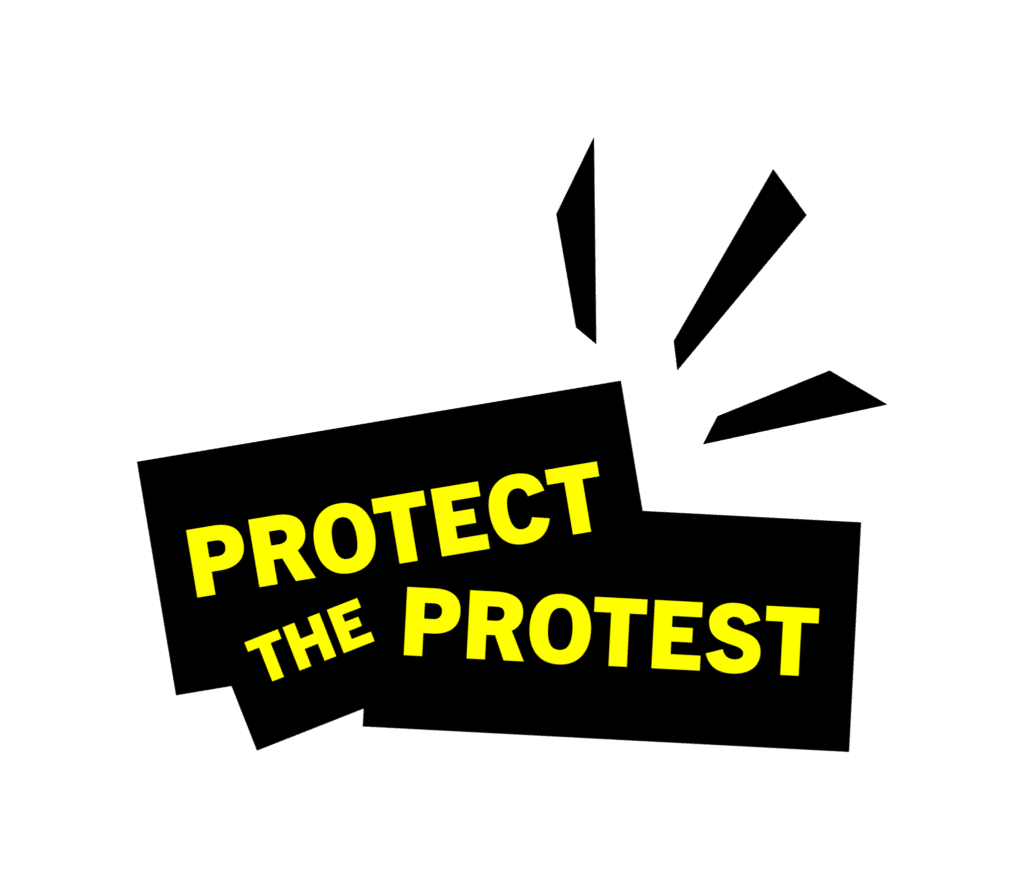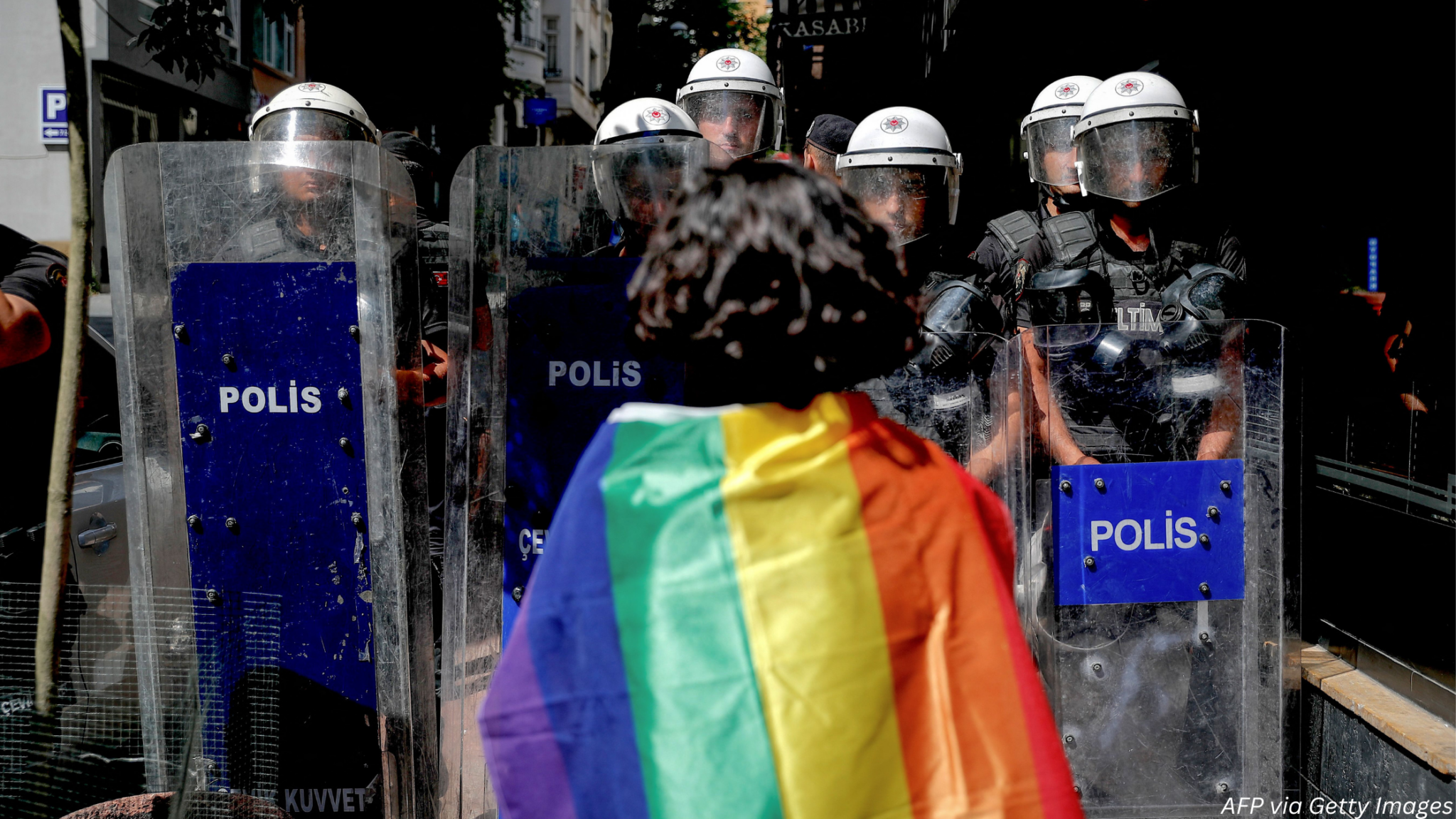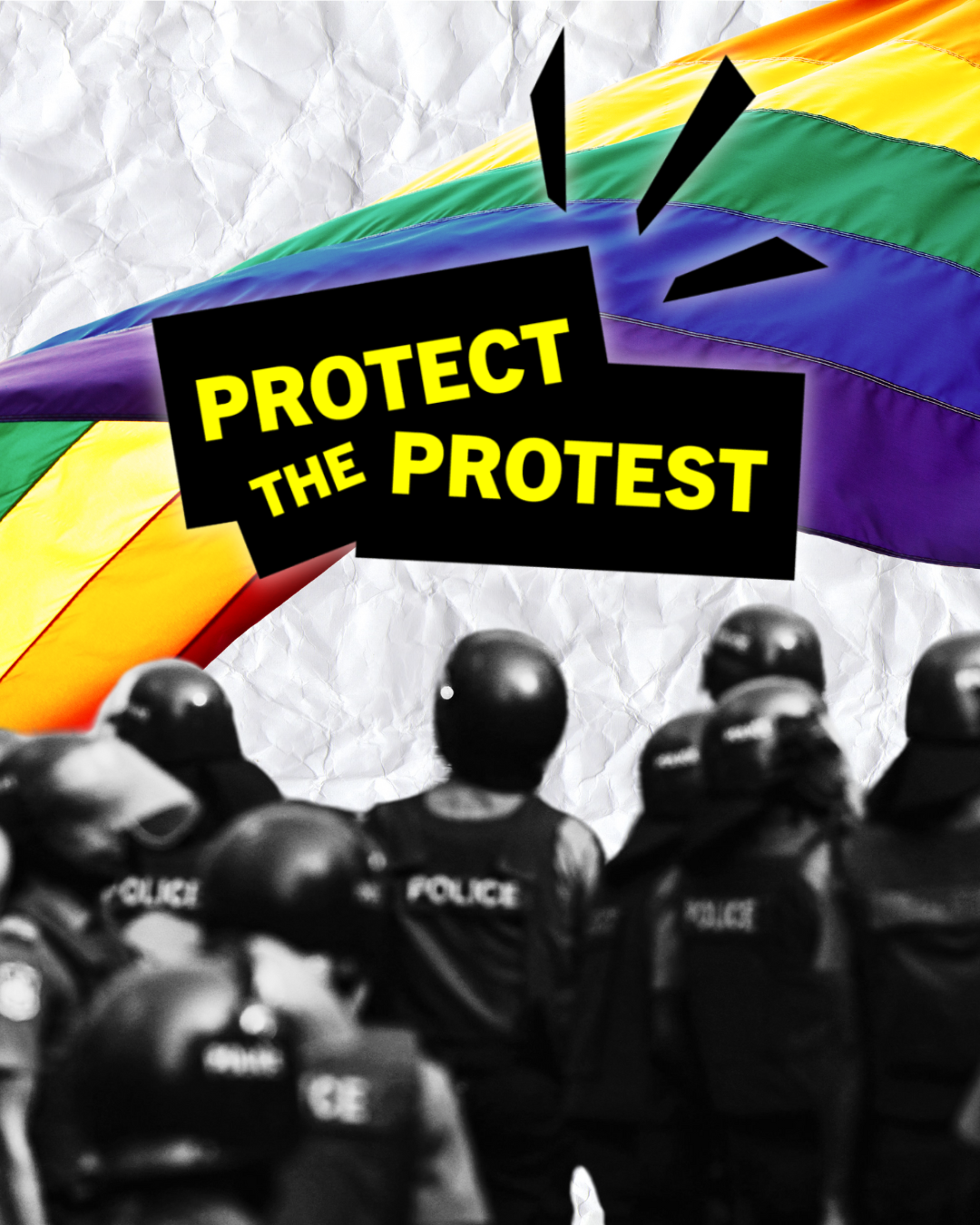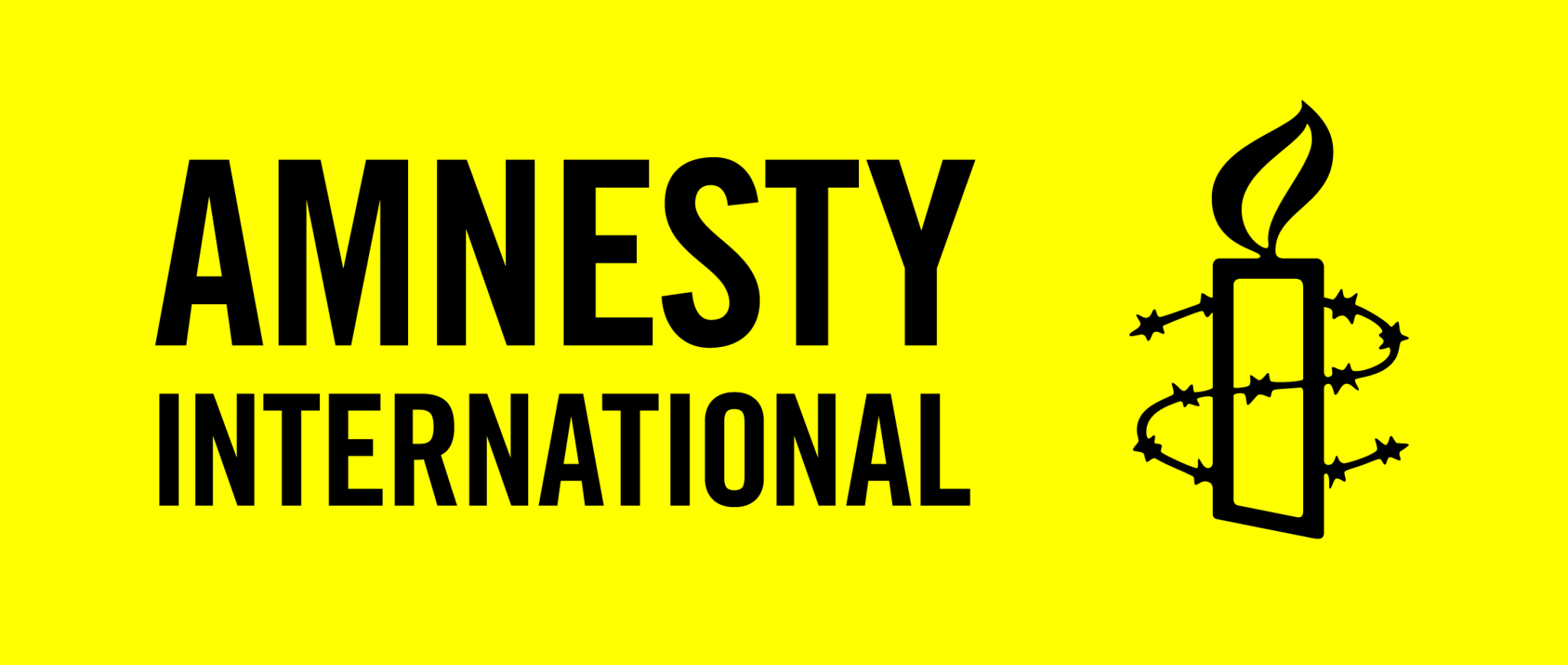
Pride was and will always be a PROTEST
At Amnesty International, we recognize that Pride is more than just a celebration – it is a powerful symbol of resilience, defiance and solidarity in the face of discrimination and injustice. Since its inception, Pride has been intertwined with protest – a loud and colorful assertion of the rights and dignity of 2SLGBTQIA+ individuals in Canada and around the globe.
Our struggles are interconnected and solidarity across movements strengthens our collective impact. Learn about your right to expression, existence and thriving without fear or prejudice, and take part in actions that help ‘Protect the Protest’. SIGN UP today!
Sign up to Protect this Protest!
Protect the Protest
The ability to protest safely is an issue that intersects with the right to be free from discrimination. People who face inequality and discrimination, based on their age, race, gender identity and many other factors, face even more dangers to their right to protest. It is crucial that everyone can protest safely and without discrimination.
In its flagship campaign, Protect the Protest, Amnesty International is working to expose violations of protesters rights and support movements worldwide as they strive for positive change. The campaign calls on governments to send a clear message that protesters should be protected and to remove unnecessary barriers and restrictions to peaceful protest.
Is Protest a Human Right?
When taking part in a protest, a person is exercising a variety of universally recognized human rights.
As well as the rights to freedom of expression and peaceful assembly, this includes other rights that are essential to enable peaceful protest, including the right to life, to freedom of association, to privacy, and to be free from arbitrary arrest and detention, and from torture and other ill-treatment or punishment.
Therefore, rather than being codified under a single law or treaty, the right to protest is protected under international human rights law by provisions enshrined in various international and regional treaties guaranteeing each of these distinct yet mutually reinforcing rights. Taken together, they provide protestors with comprehensive protection.

Discrimination and the Ability to Protest Safely

While we all have equal rights to peacefully protest, it is important to acknowledge that intersecting forms of discrimination, from ability to gender to race, make it more difficult for some people to access those rights.
Women, 2SLGBTQIA+ individuals, gender-non-conforming people, children and young people face specific challenges when it comes to participating in protests safely. For example, there is an outright ban against women attending protests in Afghanistan. In other countries, women are at an increased risk of gender-based violence if they decide to take to the streets and join a protest.
Pride marches around the world are regularly banned or violently suppressed by state authorities. In countries where same-sex conduct is criminalized, people attending Pride marches put themselves at risk of getting arrested.
By working together and ensuring that everyone – including the most discriminated against – can participate in protests equally and without fear of violence, we can create a more just and equal world.
Protest Under Attack Around the World
WHAT CAN YOU DO
TAKE AMNESTY'S ONLINE COURSE
Learn why protest is protected by human rights, how the freedom to protest is under threat throughout the world and how you can defend it.
SUPPORT ACTIONS IN CANADA
Read the Pride Activism Guide to learn about all the urgent actions you can take and join our network of activists fighting for 2SLGBTQIA+ rights across Canada.
HELP RAISE FUNDS FOR PROTECT THE PROTEST
Amplify your impact and join a global movement for human rights. Every dollar you raise helps fund our initiatives to Protect the Protest.
How Donations Make a Difference

Each donation helps us with:
- Equipment for volunteers doing protest observations: training, vest and safety equipment.
- Funding regional skill building for activists, both online and face to face.
- Support Amnesty’s campaigning to protect freedom of assembly in countries where these fundamental rights are not respected, such as Iran, Thailand, Russia, Senegal, Turkey and Peru.
- Campaigning for regulation of the trade of less lethal weapons
- Supporting individuals at risk of persecution for the activism in countries where trans and queer bodies are criminalized.
- Supporting campaigns on Pride and Protest around the world
- Strategic litigation initiatives to protect the fundamental rights of expression and assembly.
